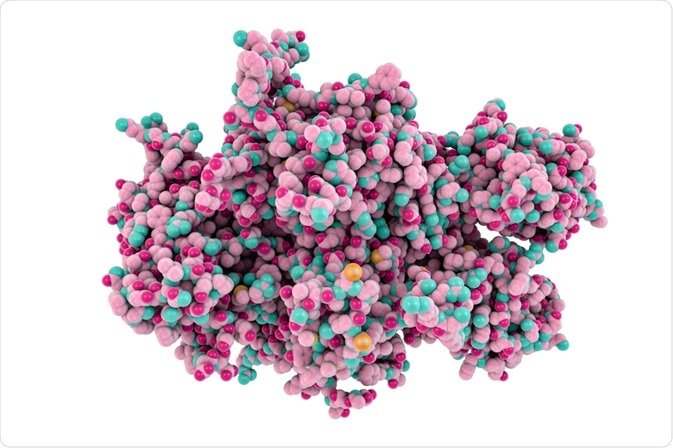Recombinant proteins are conventionally generated by transfecting the recombinant DNA into a host cell, following which the host cells are cultured and the transfected DNA transcribed and translated. Different host cells can be chosen for recombinant protein production, the choice of which depends on the type of protein that needs to be generated, its functional activity and requisite yield.
 Kateryna Kon | Shutterstock
Kateryna Kon | Shutterstock
Mammalian systems
Mammalian systems are often used to express mammalian proteins, since they represent a physiologically relevant environment. This system is used for producing human antibodies, complex proteins, and other proteins that are used in cell-based assays.
Mammalian expression system can also be used for the transient or stable expression of proteins within cell lines. Transient expression can generate large quantities of proteins within one to two weeks, while cell lines with stable expression can be used over several experiments.
The transient expression systems use suspension cultures and have the capability to produce gram/litre yields. Also, mammalian systems have a higher level of native folding and post-translational modifications compared to other systems.
Insect expression systems
Insect cells are another option for generating recombinant proteins. Insect cells provide many advantages, the main benefit of which is that the system can be scaled up and adapted for large scale expression of proteins that are functionally similar to mammalian proteins.
Furthermore, insect expression systems can generate yields up to 500ug/L. However, disadvantages of the system include the lengthiness of the process and culture conditions that are more challenging in comparison with prokaryotic system.
The role of yeasts and filamentous fungi
Saccharomyces cerevisiae was the first yeast species that was used for the purpose of making recombinant proteins. This species, along with several other yeast species, secrete the newly produced recombinant protein in to the culture media. Yeast cells can also perform correct folding and post-translational modifications of mammalian proteins in contrast to the prokaryotic systems.
One disadvantage of this system is the difference in glycosylation of proteins expressed in yeast cells when compared to mammalian cells. Yeast systems may be used to generate proteins that do not require glycosylation. Insulin is one notable example, hence yeast systems have been extensively used to produce this protein.
Filamentous fungi have also been used to generate various kinds of recombinant proteins. Fungi can secrete up to 30g/L of protein. However, fungi also produce proteases which limits their use to generate recombinant proteins.
Bacterial systems
Bacteria can be cultured and grown easily and fairly quickly, making this system popular with researchers. Bacterial cells can also yield high levels of recombinant protein.
The main disadvantage of this system is the expression of non-functional proteins, as bacteria do not posses the internal machinery to achieve the folding or post-translational modifications of mammalian proteins. In some cases, these proteins can also become insoluble, consequently necessitating harsh denaturants and protein-refolding procedures to recover the recombinant proteins.
Cell-free expression systems
In cell-free systems, synthesis of the protein can be carried out in vitro using extracts of whole cells that are compatible with translation. These cell extracts contain all the molecules and enzymes that are needed to transcribe, translate, and post-translationally modify the recombinant protein.
With additional supplements of cofactors, proteins of interest can be formed in a matter of hours. However, this system may not be applicable for large scale production of recombinant proteins. Advantages of this system include that proteins can be synthesized without cell culturing; also, it is possible to express many proteins together.
Chemical protein synthesis
This method is used for synthesis of recombinant proteins that have unnatural amino acids or proteins that are toxic in nature. Although this method provides a way to generate pure proteins, the quantity of the product is limited. Also, the method can be expensive for longer chains of polypeptides.
Last Updated: Jun 10, 2023